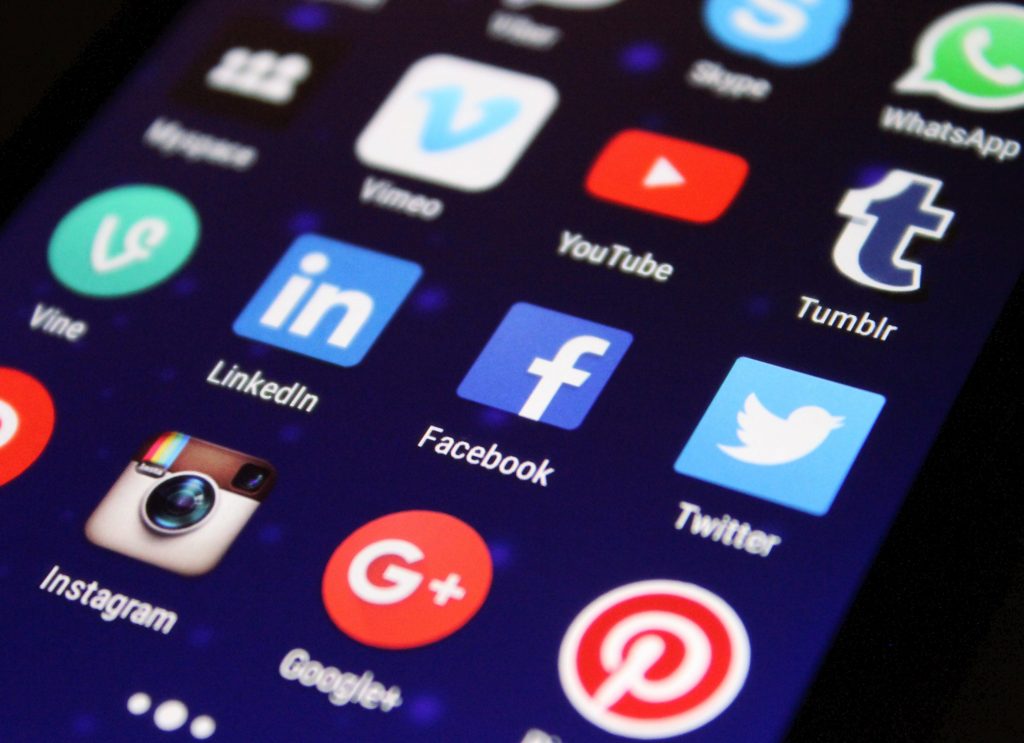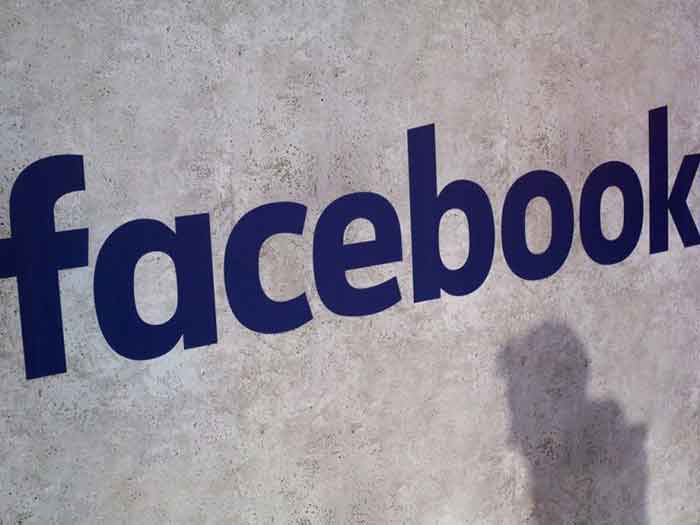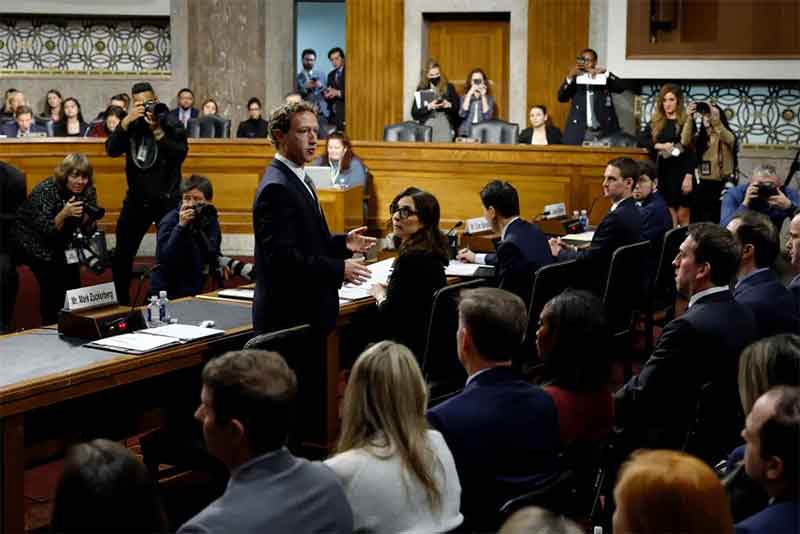by MD Tabrez Alam & Sushant Mishra

ABSTRACT
Social networking has become an indispensible part of our everyday lives. Platforms like Facebook, Instagram, and Twitter have changed how we communicate, share information, and connect with others. At the same time, platforms like LinkedIn, Reddit, and Quora have been introduced to serve professional and academic interests. Social media is a source of entertainment, comfort, and information for many individuals. However, research has also highlighted the negative impacts of social media on people’s mental health and social relationships. One common issue is social comparison, which occurs when individuals compare themselves based on social media posts. It can cause feelings of inadequateness, reduced self esteem, as well as anxiety. Also, “cancel culture”, and bullying can occur on social media platforms, which may lead to negativity and hate speech. Moreover, excessive use of social media can adversely affect sleep patterns, physical health, and productivity. Furthermore, addiction to social media can result in decreased face-to-face communication skills and diminished personal relationships.
WHAT MATTERS TO PEOPLE?
Social networking has been immensely helpful in drawing attention to various social and governance-related issues.As a result, it has conclusively demonstrated to be an effective method for resolving grievances; its appropriate use in this context can enhance overall effective governance. People of all ages and backgrounds use social media, which has become ubiquitous in modern life. It has caused a significant shift in how people interact and communicate with each other and how they form and maintain relationships. On the one hand, social media has enabled people to connect and interact with a wider variety of people than ever before and to access new sources of information. However, it has also resulted in a culture of instant gratification and comparison and a tendency towards superficial interactions and relationships. The effects of social media on people’s lives can be positive and negative. On the positive side, social media has made it possible for people to connect with friends and family members who may be geographically distant, to stay up to date with current events, and to access helpful information quickly.
It has also made it easier for people to form and maintain relationships and share their thoughts and feelings with others more publicly. Unfortunately, social media has some adverse effects on people’s lives. Isolation can result from using social media, as people can become consumed by their online lives, neglecting the real-life relationships and activities that matter. Additionally, social media has become an essential tool for businesses, allowing them to reach larger audiences, engage with potential customers, and build brand recognition. Ultimately, social media plays an essential role in people’s lives, providing them a platform to connect, engage, and share.
GLOBAL & NATIONAL SCENARIO
| Based on an article (iimskills.com), there are 3.6 billion people who use social media. The percentage of people who use social media is 49%, and the average time spent on social media by internet users daily is 144 minutes. |
Asper, a report by A business journal from the Wharton School of the University of Pennsylvania, emphasized that “the Indian population has become entirely reliant on social media networks as a result of easy access to the internet in recent years, with slightly more than 326.1 million users in 2018, the country is expected to grow to 447.9 million users by 2023”. India has the most Facebook users worldwide, with nearly 300 million as of January 2020. Furthermore, WhatsApp and TikTok mobile downloads peaked in India in 2020. The Indian government launched the Digital India initiative to capitalize on this opportunity as the country became more reliant on social media. India’s digital advertising industry, which is currently worth more than 160 billion INR and is expected to grow to 560 billion INR by 2023, must catch up.
SOCIAL MEDIA IN THE INDIAN CONTEXT:
Social media has revolutionized the way Indians communicate and connect. From the ubiquity of WhatsApp to the rise of Instagram, social media has become an integral part of everyday life in India. People can now access news and trends more quickly and efficiently than ever before thanks to the rapid dissemination of information enabled by social media. It has been essential in the Indian context, where access to the internet is still limited in many rural areas. Social media has also allowed for greater participation in political discourse, with many Indians using social media platforms to express their opinions and share information. The use of social media has also had a significant impact on the Indian economy. Social networking platforms like Insta, Facebook, Twitter, and LinkedIn have allowed Indian businesses to reach out to potential customers, resulting in increased sales and profits.
SOCIAL CAMPAIGNS AND ITS IMPACT ON GOVERNANCE:
Social media has evolved into a powerful tool for businesses to connect with their target demographic, build relationships, and foster brand loyalty. By leveraging the potential of social media platforms, companies can create conversations, attract attention and foster relationships. Social media also helps companies increase their visibility and reach, with more consumers now using multiple platforms. This has enabled businesses to create more personalized, targeted messages that are more likely to be seen and resonate with their target audience. Organizations can also use social networks to acquire insights into customer behaviour and preferences, allowing them to tailor their advertising and item offerings to meet the requirements that their clients have. In India, social media has been used as a means of promoting social change. Movements such as #MeToo, #UniteForJustice and #JusticeForBhuvaneshwari, like that, and many more campaigns have all used social media as a medium to raise awareness and gain support.
Additionally, social media has enabled entrepreneurs to showcase their products and services to a broader audience, leading to more investment opportunities. Furthermore, social media has been essential for social movements in India. From the 2014 “Aam Aadmi Party” election campaign to the #MeToo movement, social media has enabled activists to connect and mobilize support much faster than before. Social media has revolutionized how people communicate, interact, and stay connected. It has become an integral part of people’s everyday lives, allowing them to stay in touch with family, friends, colleagues, and strangers. People use social media to share their thoughts and feelings, keep up with the latest news and trends, and even discover new experiences.
CHALLENGES:
The social media landscape in India is rapidly changing, with more than 500 million users currently active on various platforms. However, several challenges need to be addressed to ensure that social media is used for positive purposes in India. One of the biggest challenges of social media in India is the need for more awareness about its potential risks. Since many users are unaware of the dangers of online harassment, cyberbullying, and other risks, they may put themselves in unsafe situations. Additionally, there is the potential for people to spread false information and rumours, which can damage communities and individuals. Another challenge is the need for more regulation and oversight of social media platforms, which can lead to misuse by individuals and organizations. With adequate regulations, controlling the spread of false information, malicious content, and other harmful activities can be easy.
Additionally, many social media platforms need more transparency, making monitoring user activities difficult. Finally, there needs to be more understanding of the power of social media in India. Many people need to realize the potential for social media to be used for good, such as for social movements, to raise awareness about important issues, and to promote positive messages.
Social media has become a powerful tool for spreading hate in India. It has created a platform for individuals to express their opinions and beliefs publicly, and it has become a breeding ground for bigotry, prejudice, and hatred. The ease of expressing hatred on social media has enabled people to share their hateful views and experiences without fear of consequence. This has resulted in increased levels of hate speech, targeting communities and individuals in India. Social media has also spread false information and malicious rumours about certain population members. This has caused people to become more divided and hostile towards each other. In addition, social media has been used as a tool for organizing hate campaigns. Groups have used social media to target religious, ethnic, and other minorities, leading to increased hate crimes in India. The rise in hate on social media in India has created a hostile environment and is damaging to the country’s social fabric. It is essential to rise awareness and put in measures to monitor and control hate speech on social media. This will help curb the spread of hate and create an environment of acceptance and understanding.
WAY FORWARD:
In conclusion, social media can be a powerful tool to enhance communication, knowledge-sharing, and awareness. However, it is essential to recognize and balance the potential adverse effects by setting boundaries, limiting screen time, and maintaining real-life relationships. With the rise of social media, controlling false information has become a significant challenge in India. It is absolutely essential to be aware of the information sources and to verify them through trustworthy sources. In order to control false information, people should be encouraged to take responsibility for the accuracy of the information they post on the platforms. One way to combat the spread of false information is to create campaigns that promote fact-checking and verifying sources. Social media users should be encouraged to use reliable information sources and double-check any claims made before sharing them.
Additionally, organizations should have a policy in place to penalize those who are found to be spreading false information. The use of social media can also be used for positive outcomes in the Indian context. The platforms can create awareness about critical social issues and encourage people to donate to charity. Additionally, social media can be used to engage with diverse opinions and to support campaigns for social justice. By controlling false information and engaging with positive campaigns, people can help create a better future. It has become major part of our lives, and it has the potential to be a powerful tool for good governance. By connecting people and organizations, social media can help to make governments more responsive to their citizens, increase transparency and create better communication between citizens and their elected officials. Social media can be used to foster public engagement and participation in the political process by allowing citizens to access information quickly and to express their opinion. Through social media, citizens can be informed of political events and news and participate in debates and discussions. It also allows citizens to contact their representatives and hold them accountable for their decisions, to increase transparency in government.
It can be used to share documents and data, which can help citizens understand and better evaluate their government’s performance. Additionally, it can increase government services’ efficiency and streamline processes by providing citizens with easy access to information and the ability to report issues and complaints. Overall, social media offers an excellent opportunity for governments to create a more efficient, transparent and democratic system of governance. It can help ensure that citizens have access to the data they require to make informed decisions and hold their elected officials accountable for their decisions.
REFERENCE
- https://www.downtoearth.org.in/blog/governance/post-covid-19-e-governance-challenges-a-case-study-of-anganwadi-services-74701, (accessed on 12-03-2022).
- The Wharton School of the University of Pennsylvania. https://www.wharton.upenn.edu/, (accessed on 12-12-2022).
- https://knowledge.wharton.upenn.edu/article/impact-of-social-media/, (accessed on 24-01-2023).
- https://www.dailypioneer.com/2022/state-editions/augment-good-governance-through-social-media.html, (accessed on 16-03-2023).
- The Impact of Social Media on Children | Working Paper. https://childrenatrisk.org/impact-of-social-media-on-children/
About Authors:
- MD Tabrez Alam, Doctoral Scholar @ Indian Institute of Dalit Studies, New Delhi. As a researcher, the quest for knowledge begins with fieldwork. He is currently working on Urban inequality and housing segregation in newly developed townships in India. His research interest lies in Research, Policy, Development, Communication and Social Work intervention.
For more info.
Follow @ktabrezshams
- Sushant Mishra is an independent Communication Media Analyst, and he has obtained a Master’s degree from the Department of Culture and Media Studies, Central University of Rajasthan.
For more info.
Follow @Sushant_Mishraa















































